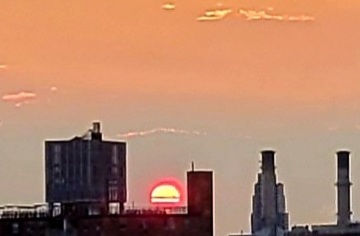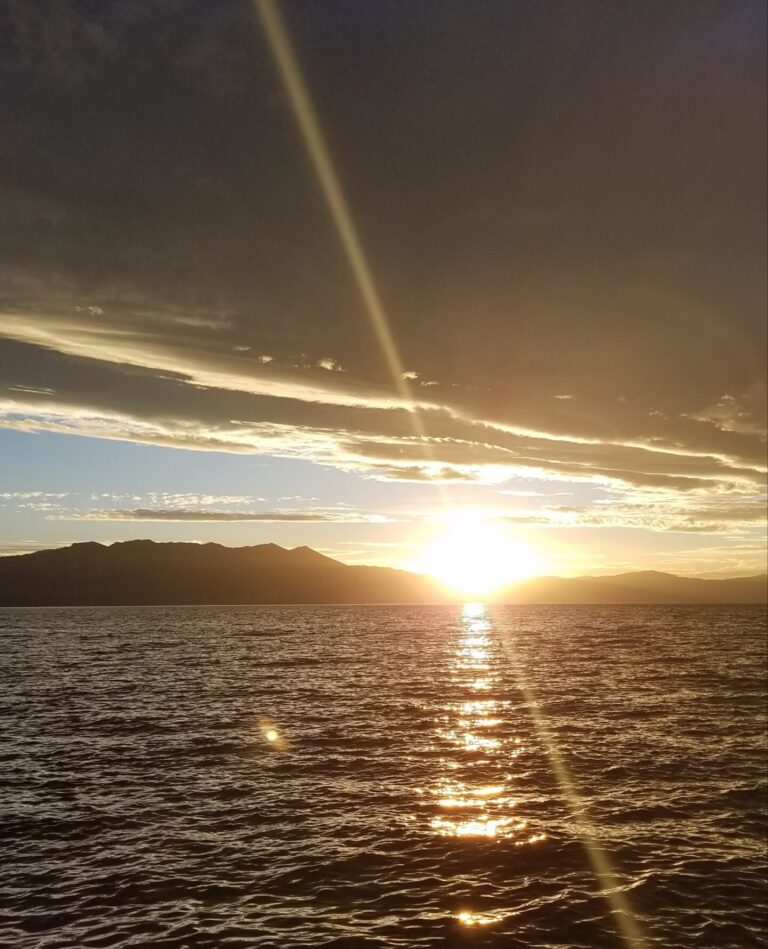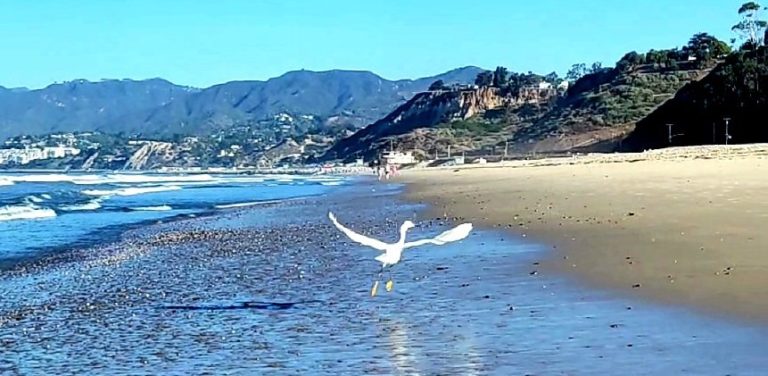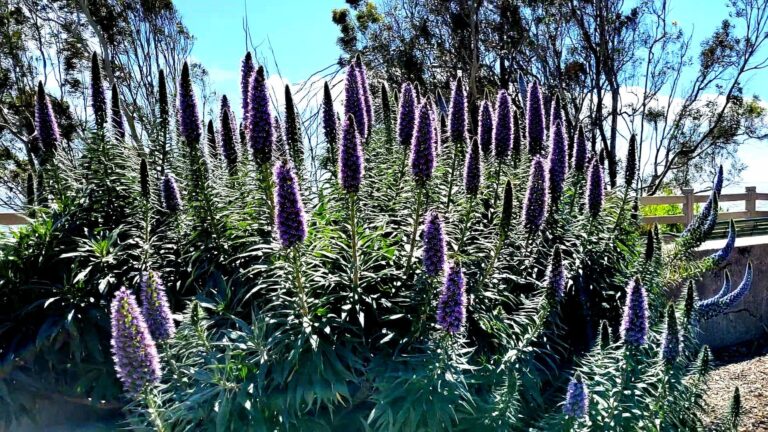William Welch – 3 Poems

THE WOUND
“My sentence was a thousand years of joy.”
—Robert Bly
When the doctor cut his thumb while chopping garlic,
he knew the sun had made it across the gangplank
to the barge it would travel on that night.
It takes three weeks for certain wounds to heal,
but the doctor doesn’t know what kind
of wound this is, or how to sew it shut.
Plato said we wait a thousand years to be reborn.
A thousand years depend on fifty—fifty years
depend on two minutes—two minutes on fifteen seconds.
In fifteen seconds the heart beats twenty times.
When he died, the doctor’s heart was weighed against a feather.
His sentence was a thousand years of joy.
The sun pretends it doesn’t know where it’s going
each night. Its boat just follows the ocean currents,
like blood flowing from an open wound.
Doctor, why hold pressure? Don’t you know
the sun always makes it back to its starting place?
Soon, that cut will be a cicatrix of light.
WATER WITCHING
We woke together in darkness
and said, “the day is coming …”
I can feel that ellipsis, three small punctures running right through my tongue,
and through them a thread that fastens my promise there.
I made coffee. Starlings chattered down the stovepipe, driving the cat crazy.
He listened, wishing he were a chimney sweep
while we, half-caffeinated, inoculated with a little sun,
headed out to work. You left first.
Lagging behind, I picked up twigs from our yard
and closed my eyes, pretending I felt one turn in my palms, pointing …
My grandfather knew how to dowse.
Underground, he said, below our valley’s brown river and canal,
another river was flowing through the bedrock,
cutting a deeper valley the solid-seeming ground stood upon.
From this dark stream our village drank.
He drilled the wells.
Long after his retirement, people who saw him around town would say,
Bill Frankland, I haven’t had a good cup of coffee in years because you quit.
So, I tried this morning to find our spring.
You should have seen me stumbling through the yard,
a frustrated druid waving a stick around.
I even touched it against the dirt like a tuning fork
pitched in the key of water,
(an old trick for finding broken bones—
the vibration makes you wince if there’s a fracture).
Did I think the earth would flinch, or scream water,
like when Moses tapped a stone?
Whatever gift my grandfather had didn’t pass to me,
the wand would not turn.
Into the compost with its stubborn magic.
I don’t need it. I can be twice as stubborn.
Tonight, as we go to bed, I promise
I’ll find water soon.
ANAMENSIS
Ground-thaw at last. We went to dig
holes for trellis posts,
the old man and I, his grandson,
only boy born in a clan of girls.
All morning together,
we turned the augur through brown grass,
a giant key, I thought, twisting in a rusted lock.
I would stop from time to time
in order to catch my breath
and look around the yard, a broad
door closed against us. In my imagination,
I decided we were thieves—
digging for a buried treasure,
anything to placate my boredom.
Slowly, as my body warmed,
my mind began to focus on our work,
my breathing, his breath—he breathed hard,
blood flushed his cheeks,
marked with creases, and that one mole on his right cheek
like a button he had grown there to tie his mouth,
and keep himself from telling secrets.
He didn’t speak most of the time,
though when he thought we had gone deep enough,
that we had picked the lock, he would say,
“Pull it up now, pull up.”
The soil would tear loose.
We drew up the core,
opened the ground—
and each time I peered in.
What I saw were stones—like those he had pried
from the dirt years ago, and that he had set into a wall
two feet high between the neighbor’s yard and his.
Nothing was hidden here.
No cave.
No secret room beneath the grass
in which people were meeting quietly with maps.
After pulling up a few of these sod corks,
my grandfather broke his silence and said,
“There was an old barn here once.
“This must have been a part of its foundation.”
That was something new
for my disappointed imagination.
I looked around again,
inventing a farm,
could smell the strong, sour scent of cows,
and rubbed my nose as if I were about to sneeze.
Now, I wanted to dig.
What else was hidden in the mud?
Arrowheads?
Musketballs?
A piece of broken pottery?
At the thought of ceramic, I pictured a woman
holding a bowl full of food, reaching it across a table.
Our eyes met, then I followed the line of her neck,
her shoulder, her arm—looked at her wrist,
how the two bones came together
and flowered into her five fingers.
This was her home.
What was her name?
Where did she come from?
What happened to her?
“We’re done digging,” my grandfather said.
We had to set the posts in next.
As I worked beside him, tired, I suddenly felt
how new I was compared with him.
I looked at his face, tried to memorize it,
tried to memorize the shape of his hands,
arthritic, liver-spotted.
I could smell his sweat as he reached over me.
He was an old man,
working against his age and weakness,
trying to maintain his garden.



